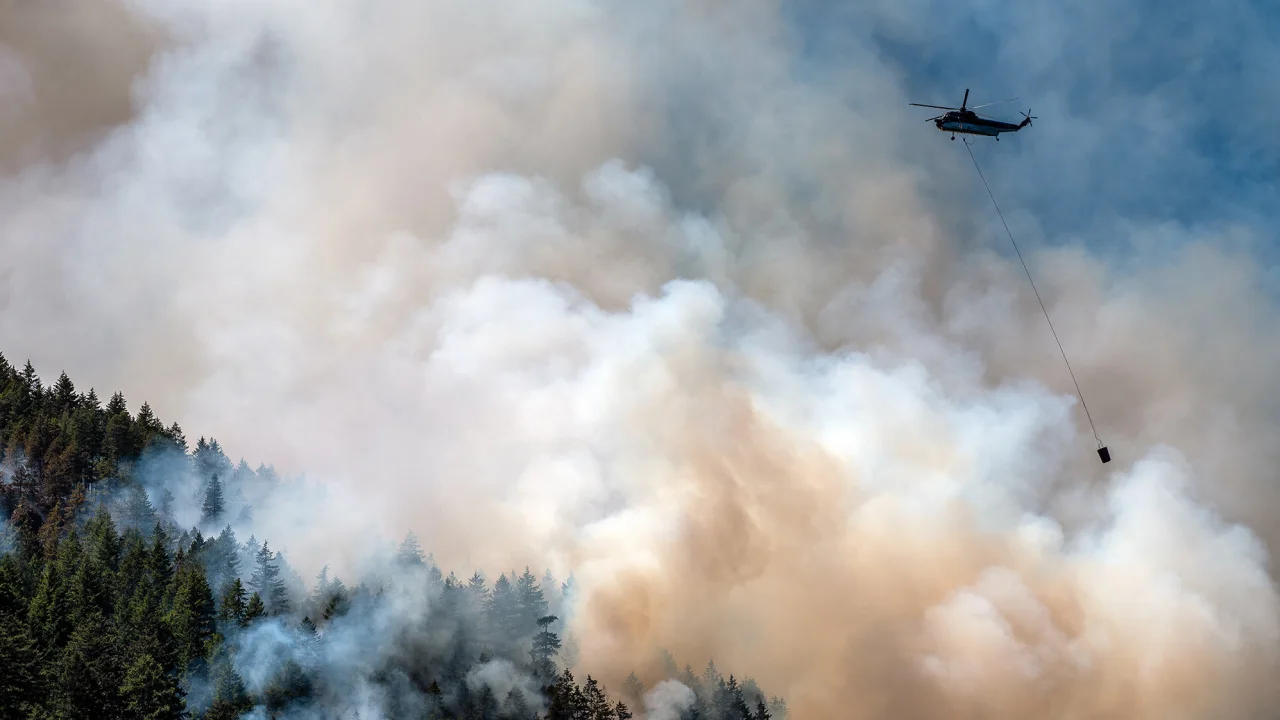The unprecedented wildfires that ravaged eastern Canada during the summer, causing hazardous air quality and significant ecological damage, were amplified in their intensity and likelihood by the climate crisis, reveals a recent report by the World Weather Attribution initiative.
Tangible Impact of Climate Change
Scientists from the initiative, renowned for dissecting climate change’s role in extreme weather phenomena, found compelling evidence that the climate crisis more than doubled the probability of the hot, dry, and windy conditions that fueled the Quebec fires from May to July. Furthermore, this fire-prone weather became at least 20% more intense due to human-induced climate change.
The report unveils that climate change intensified Quebec’s fire season up to July’s end by a staggering 50%.
Reverberations Beyond the Figures
Friederike Otto, co-founder of WWA, points out that the study’s figures might not fully encompass the true extent of climate change’s impact. The findings already utilized conservative estimates, hinting that the actual influence of the climate crisis could be more substantial.
The Intricacies of Wildfire Influence
While wildfires are shaped by a multifaceted interplay of factors, scientists emphasize that the burning of fossil fuels, and the resultant climate change, tilts the odds toward fiercer and more frequent infernos.
A World in Transformation
Climate change is ushering in a new normal characterized by heightened risks of wildfires due to increased warmth and dryness. This reality, noted Clair Barnes, a report author from the Grantham Institute, underlines the prevalence and intensification of wildfire-friendly conditions worldwide.
Canada’s Calamitous Fire Season
Eastern Canada bore the brunt of a relentless fire season, marked by scorching temperatures and arid conditions. This year’s May to June period registered the highest temperatures since 1940, exceeding the previous record by a notable 0.8 degrees Celsius. Over 15 million hectares, an area approximately the size of Illinois, succumbed to the inferno.
The fires wreaked havoc on communities, resulting in fatalities, evacuations, and unprecedented air pollution levels that extended even to Western Europe.
Implications for the Future
The WWA analysis emphasizes that climate change is transforming the landscape of wildfires, rendering them more devastating and recurrent. The study underscores the pressing need to shift away from fossil fuels to mitigate the escalating risks associated with wildfires.
As the relentless blaze of wildfires continues to threaten communities and ecosystems, the study stands as a stark reminder that climate change’s consequences are not just theoretical but tangible, affecting lives, landscapes, and the very fabric of our planet.
